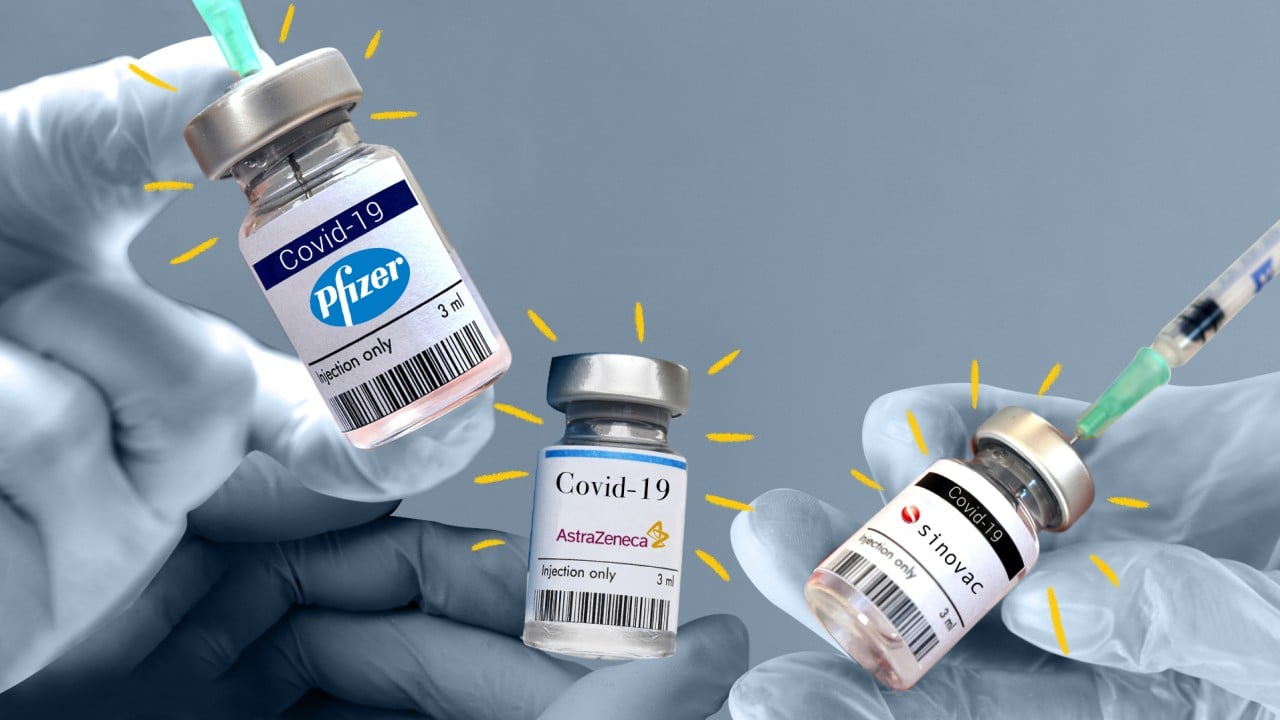
Coronavirus: Pfizer raises hopes vaccine can fight new strains found in Britain and South Africa
- Preliminary research conducted with the University of Texas suggests it will still work against the new variants of Covid-19
- The viral mutations have proved more transmissible than other strains as infection rates soar in some countries
Pfizer released the results of a joint study conducted with the University of Texas Medical Branch on Thursday.
It tested the vaccine resistance of 20 participants in its earlier trials against lab-made versions of the new strains of the virus. It found no reduction in their ability to neutralise the new strains.
Both strains, which appear more contagious than previous ones, are rampant in the countries in which they were first detected. Britain recorded a record 62,322 cases of Covid-19 on Wednesday, with South Africa recording over 21,000.
Countries around the world have issued travel bans and restrictions to prevent the transmission of the new strains across borders, but both have already spread globally.
Whilst there is no evidence that they cause a more severe illness, the heightened contagiousness of the strains has raised concerns. Scientists also fear that the strain discovered in South Africa carries a mutation that may make it more resistant to vaccines.
Governments worldwide have been pinning their hopes for a return to normal life – and economic recovery – on the success of vaccine roll-outs.
Professor Leo Poon Lit-man, from the University of Hong Kong’s School of Public Health, said that although the new research was only a preliminary study with a small sample size of 20, it was an impressive turnaround for the Pfizer team.

09:50
SCMP Explains: What's the difference between the major Covid-19 vaccines?
“The sample size is small but that is the reality, not many people have been vaccinated,” he said.
Poon said that, despite the small sample size of the current study, the Pfizer vaccine had been trialled in different countries around the world, meaning it likely had “some reasonable level of protection”, regardless of region.
The study noted that it used lab-made versions of the new strains which did not perfectly mimic the full set of mutations found on the new strains, limiting its findings.
Sinovac Biotech Covid-19 vaccine seen as 78 per cent effective in Brazil
“The most important question is, do these serum samples neutralise the natural strains [of the virus]?” Poon said. “If that can be shown, it will be even more convincing.”
On Thursday, Mike Ryan, the World Health Organization’s executive director for the health emergencies programme, said that work was ongoing to find out whether vaccines would still be effective, but that so far the evidence looked promising.
“Right now as far as we can see, the data is pointing to these vaccines still being effective, and we’re not overly concerned that that is going to change,” he said.

